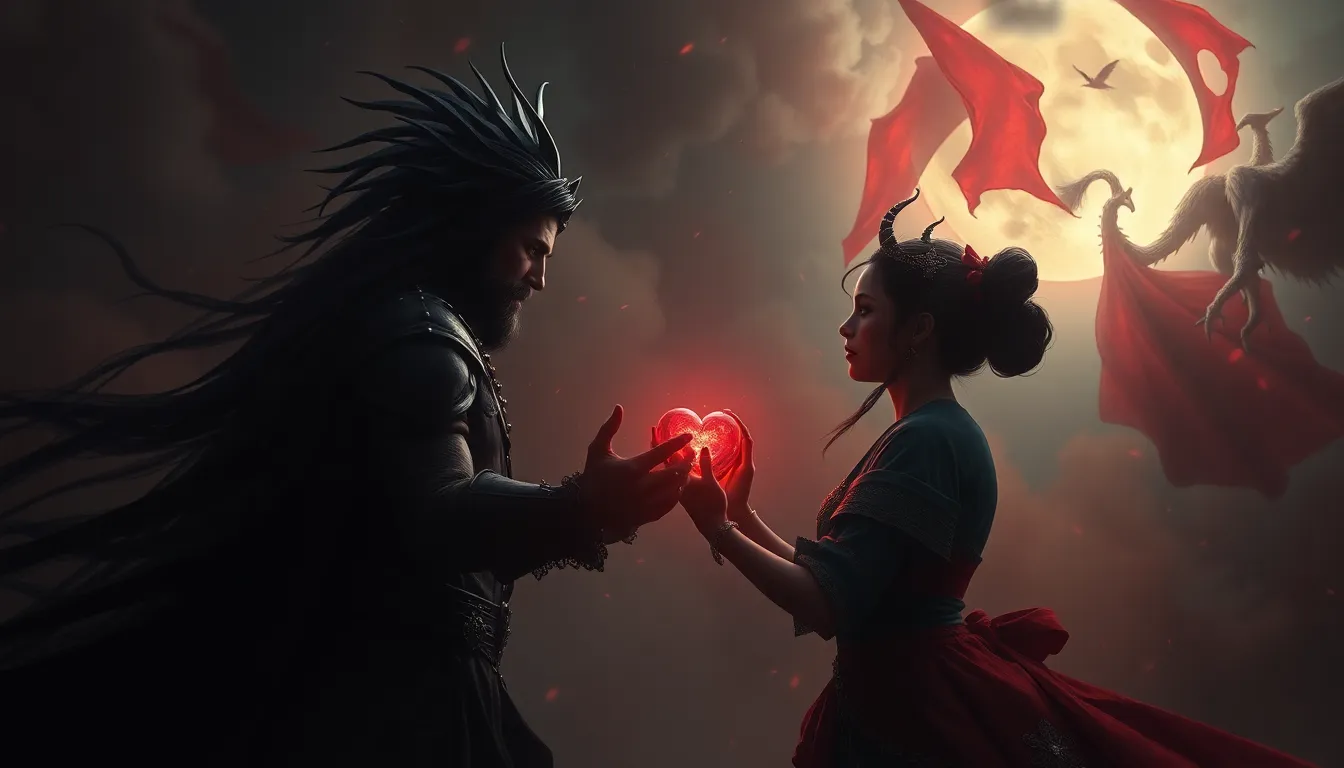The Heart’s Battle: Love Stories of Conflict and Resolution
Introduction: The Complexity of Love
Love is a profound and multifaceted emotion that has captivated humanity for centuries. It encompasses a range of feelings, from deep affection and passion to companionship and commitment. Yet, this powerful emotion is often accompanied by conflict, as couples navigate their differences and personal challenges. Understanding the nature of these conflicts is essential for fostering deeper connections and achieving resolution in romantic relationships.
Historical Perspectives on Love and Conflict
Throughout history, love stories have often been intertwined with conflict. Ancient civilizations recounted tales of star-crossed lovers whose relationships were thwarted by societal norms, family feuds, or tragic circumstances. For example, the story of Romeo and Juliet highlights how familial conflict can lead to devastating consequences for young love.
Cultural contexts greatly shape romantic conflicts. In some societies, arranged marriages create tensions between individual desires and familial expectations. Notable historical figures, like Cleopatra and Mark Antony, illustrate how love can become a battlefield, influenced by political and social dynamics.
Modern-Day Love Conflicts: Common Themes
In contemporary relationships, conflicts continue to arise, often stemming from common themes:
- Miscommunication and misunderstandings: Many couples find themselves at odds due to a lack of effective communication, leading to assumptions and hurt feelings.
- External pressures: Family, friends, and societal expectations can place undue stress on a relationship, creating rifts that need addressing.
- Differing life goals and aspirations: Partners may find themselves on divergent paths, leading to conflict as they struggle to reconcile their individual dreams with their shared future.
Case Study: Literary Love Conflicts
Literature has long served as a mirror reflecting societal views on love and conflict. One of the most famous literary couples, Elizabeth Bennet and Mr. Darcy from Jane Austen’s “Pride and Prejudice,” exemplifies the struggle between personal pride and societal expectations. Their initial misunderstandings and class differences create significant tension, but ultimately, they learn to communicate and compromise.
Literary conflicts often provide valuable lessons about the nature of love, highlighting that resolution often requires understanding and growth. These stories remind us that love is not devoid of challenges, but rather enriched by them.
Real-Life Love Stories: Conflict and Resolution
Real couples face conflicts similar to those depicted in literature. Personal narratives illustrate the resilience of love amidst challenges:
- A couple who overcame significant addiction issues through mutual support and therapy.
- A relationship that survived long-distance challenges by prioritizing communication and regular visits.
In interviews with relationship experts, various conflict resolution techniques are emphasized, including:
- Establishing boundaries and respect.
- Practicing empathy and understanding each other’s perspectives.
- Engaging in constructive dialogue rather than confrontational arguments.
Forgiveness plays a crucial role in healing rifts, allowing couples to move forward with renewed commitment.
The Psychological Impact of Love Conflicts
The emotional toll of unresolved issues can significantly impact mental health. Individuals may experience anxiety, depression, or feelings of isolation when conflicts remain unresolved. Research indicates that healthy relationships contribute positively to mental well-being, while ongoing struggles can lead to a decline in psychological health.
Therapeutic approaches, such as couples therapy, can provide tools for managing love-related conflicts. Techniques like Cognitive Behavioral Therapy (CBT) help couples recognize and change negative thought patterns that exacerbate conflicts.
Cultural Differences in Love and Conflict Resolution
Cultural backgrounds influence how couples approach conflicts. For instance:
- In collectivist cultures, family opinions may weigh heavily in relationship decisions, leading to unique conflicts.
- Intercultural couples often navigate challenges stemming from differing communication styles and values, requiring patience and adaptation.
Case studies of intercultural couples reveal that understanding and respecting each other’s cultural norms can enhance conflict resolution strategies. These couples often emerge stronger as they blend their traditions and values.
The Role of Communication in Resolving Love Conflicts
Effective communication is the backbone of resolving love conflicts. Couples can adopt various strategies to improve their dialogue:
- Active listening: Focusing fully on the speaker without interrupting promotes understanding.
- Empathy: Putting oneself in the partner’s shoes can foster compassion and reduce defensiveness.
- Open dialogue: Encouraging honest discussions about feelings and concerns can prevent misunderstandings from escalating.
Building Stronger Relationships Through Conflict
Rather than viewing conflict as a negative aspect of love, couples can transform it into an opportunity for growth. Embracing conflict allows partners to:
- Identify and address underlying issues.
- Practice compromise and negotiation skills.
- Foster resilience, ultimately strengthening their bond.
Conclusion: Navigating the Heart’s Battle
In conclusion, love is a complex journey filled with conflict and resolution. Understanding the nature of these struggles can lead to deeper connections as couples learn to communicate, empathize, and grow together. Embracing the challenges of love not only enriches relationships but also enhances personal growth.
As we navigate the heart’s battle, let us remember that the power of love lies in its ability to transform conflicts into opportunities for understanding and connection. By committing to resolution, we can forge stronger, more resilient relationships that stand the test of time.




